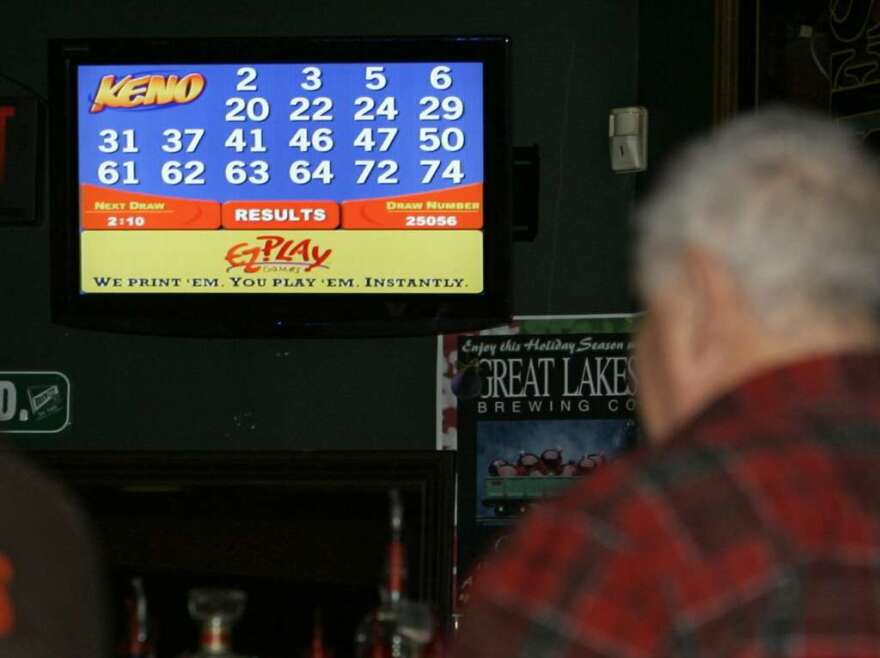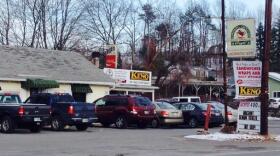Last week, the New Hampshire legislature voted to legalize the electronic bingo game Keno. This is an issue that has come up in the Statehouse several times in the past but has never been able to clear both chambers.
The proposal now heads to Governor Chris Sununu who said he’d sign it – making New Hampshire one of about 18 other states who operate Keno.
NHPR reporter Paige Sutherland joined Morning Edition to discuss what this means for New Hampshire residents.
To start off – what actually is Keno?
That’s a good question – since I’m from Massachusetts, the largest provider of Keno, I grew up with it and have played it a few times myself. Basically it’s a form of lottery gambling offered in places that hold liquor licenses such as bars and restaurants.
The idea is sort of like bingo: you put your bets on this pink numbered slip and then every four or five minutes a computer randomly generates 20 numbers and displays them on this video monitor usually hung up on the wall.
The more numbers a player matches – the higher the payout.
To learn more about Keno - check out NHPR's detailed explainer here
So it’s looking like Keno is going to be legal in New Hampshire – when should we expect to see these games in our local restaurants and bars?
That’s a tricky question. It could take some time and for some towns – it may be never. The way the bill is written, each town must sign off on whether they want Keno to operate within their borders. Meaning, each resident will have the chance to weigh in with a ballot question, probably in the near future.
If towns do vote to allow it, the games will run from 11 a.m. to 11 p.m. and only those 18 and older will be allowed to play.
The Keno debate is nothing new – why now did lawmakers agree to back the concept?
You’re right - the discussion on this has been the same for years. Those against say it will lead to problem gambling and take money away from the most vulnerable. Meanwhile, those who support Keno argue it will be a revenue generator for the state – stressing that our neighbor Massachusetts draws in millions of dollars each year – specifically more than $900 million last year alone. And the head of the state’s lottery commission says about 3 percent of that money comes from New Hampshire residents who cross the border to play this game.
Why this time was different – Keno was tethered to funding full-day kindergarten programs statewide. Once that passed, New Hampshire got Keno.






